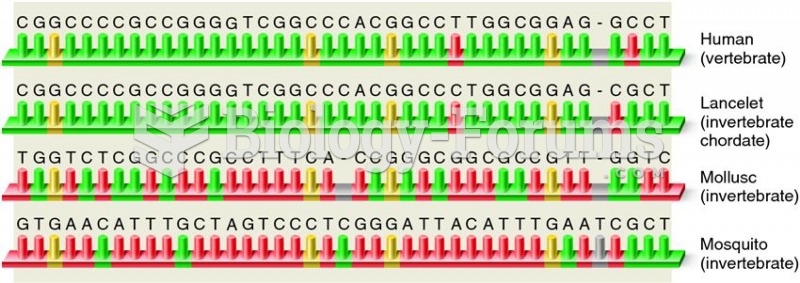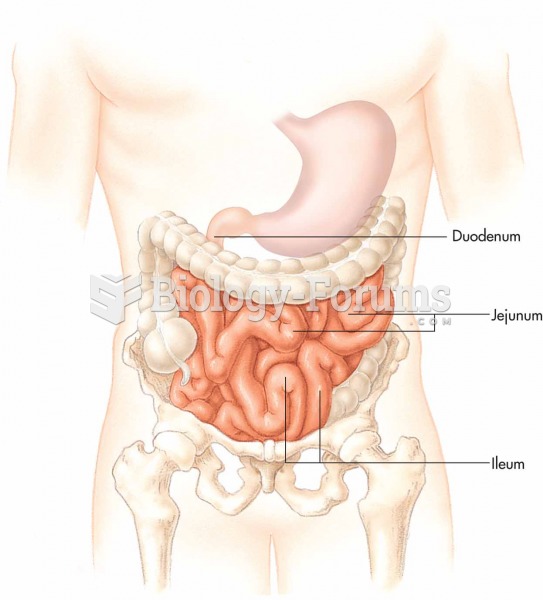This topic contains a solution. Click here to go to the answer
|
|
|
Did you know?
Not getting enough sleep can greatly weaken the immune system. Lack of sleep makes you more likely to catch a cold, or more difficult to fight off an infection.
Did you know?
In the United States, congenital cytomegalovirus causes one child to become disabled almost every hour. CMV is the leading preventable viral cause of development disability in newborns. These disabilities include hearing or vision loss, and cerebral palsy.
Did you know?
Vaccines prevent between 2.5 and 4 million deaths every year.
Did you know?
Approximately 70% of expectant mothers report experiencing some symptoms of morning sickness during the first trimester of pregnancy.
Did you know?
More than 150,000 Americans killed by cardiovascular disease are younger than the age of 65 years.
 Comparison of small subunit rRNA gene sequences of vertebrate, invertebrate chordate, and invertebra
Comparison of small subunit rRNA gene sequences of vertebrate, invertebrate chordate, and invertebra
 (a) Feeding by bear on salmon results in large allochthonous inputs of nutrients into (b) the forest
(a) Feeding by bear on salmon results in large allochthonous inputs of nutrients into (b) the forest





